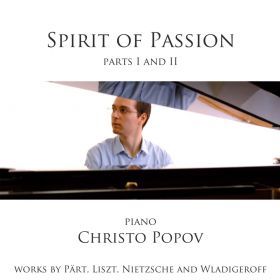My Interpretation
There have been many discussions about the difference between the ratified modern way of playing and the one that I purposefully use in my interpretation of certain epochs. That is why I consider it sensible to make my standpoint about the problem clear. Nowadays, I can see that many modern interpreters and teachers for classical music either do not know or turn down fundamental techniques, which had been invariably used by musicians in the 18th, 19th and the first half of 20th century. Due to records, literature and much practice, I was able to discover and go into detail about the philosophy and specifics of the respective technique. The principles of those style, which is forgotten by most of the modern musicians, have been described (even noted!) through the centuries by many composers, interpreters, critics and theorists. Even archive recordings from great composers and instrumentalists such as Brahms, Sauer, Clara Schumann, Grieg, Reinecke, Paderewski, Saint-Saëns, Adelina de Lara and many others, which have been preserved until today, show that what is noted on the sheet is not everything that composers actually required from the interpreters back then. And by everything I do not mean the colors and nuances of the sound that are inevitably used and individually interpreted by every professional musician. I regard much more an unsynchronized style obtained through the so called “dislocation”, i.e. the slight crossing of between the melody and the accompaniment; "inégalité" - the triplet performance (playing) of two equally written values (notes); the dissolving of chords that do not have an arpeggiation sign. By using these techniques, one could not only present a greater style authenticity, but could also interpret musical works with a unique and expressive manner, so different from the strict and synchronized ways used nowadays. In my opinion, one should not only accept the existence of such techniques, but also acknowledge them as a way to express a performer’s individuality, to fully develop a particular composition and to present a certain authenticity. Therefore, I fully adopt the main principles of this forgotten style, despite the disapproval and criticism of some modern musicians. Christo Popov

